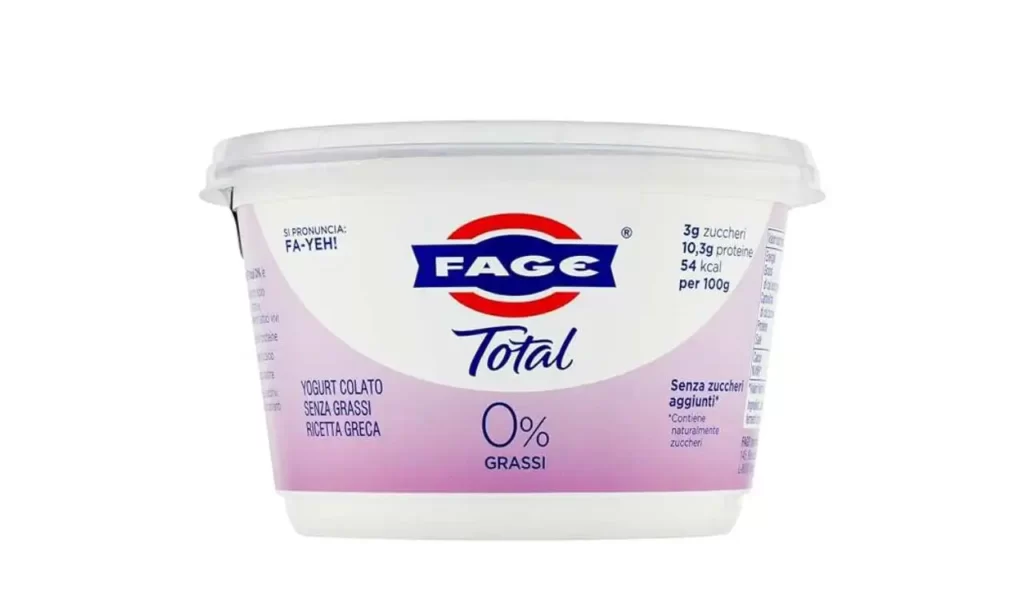Greek yogurt, renowned for its creamy texture and high protein content, has gained immense popularity in recent years.
However, for those who adhere to Islamic dietary laws, a critical question arises: is Greek yogurt considered halal?
This inquiry delves into various aspects, including ingredients, production processes, and potential sources of non-halal contamination.
In this extensive discussion, we will unravel the intricacies surrounding Greek yogurt’s halal status.
Table of Contents
Understanding Halal Dietary Guidelines

Before delving into the specifics of Greek yogurt, it is imperative to grasp the fundamental principles of halal dietary guidelines in Islam.
Halal refers to anything that is permissible according to Islamic law, while haram signifies what is prohibited.
The Quran and Hadith provide guidance on what foods and practices are considered halal, emphasizing purity, cleanliness, and ethical sourcing.
Is Greek Yogurt Halal?
Yes, Greek yogurt is generally considered to be halal. However, it is important to check the ingredient list and halal certification symbol before consuming any Greek yogurt to ensure that it does not contain any non-halal ingredients and that it has been produced in accordance with Islamic law.
Greek yogurt can be halal, but certain considerations must be taken into account:
- Milk Source: As mentioned earlier, the key ingredient in Greek yogurt is milk. It is imperative to ensure that the milk used in production is sourced from halal-certified animals like cows, goats, or sheep.
- Certification: Opting for Greek yogurt products that bear reputable halal certification symbols provides an added layer of assurance. These symbols indicate that the product has undergone rigorous assessment to meet Islamic dietary requirements.
- Cross-Contamination: Pay attention to potential sources of cross-contamination. Manufacturers may produce various yogurt types on the same equipment. Therefore, it is crucial that thorough cleaning practices are employed to prevent any contact with non-halal ingredients.
- Enzymes and Additives: When flavored varieties of Greek yogurt are considered, it’s essential to scrutinize the source and processing of any additional ingredients. Some additives or enzymes may be derived from non-halal sources, potentially impacting the halal status.
Greek yogurt can indeed be part of a halal diet if sourced and processed in accordance with Islamic dietary guidelines. By being mindful of the milk source, seeking reputable certifications, and understanding potential cross-contamination risks, individuals can confidently incorporate Greek yogurt into their halal-compliant diets.
Read: Is Greek Yogurt Sour? – (Explained).
Ingredients in Greek Yogurt

Greek yogurt, like its traditional counterpart, is primarily composed of two fundamental ingredients: milk and live bacterial cultures.
Each of these components plays a crucial role in the yogurt-making process and can influence its halal status.
1. Milk:
The type of milk used in Greek yogurt production is pivotal in determining its halal status.
Islam permits the consumption of milk from halal-certified animals such as cows, goats, and sheep. It’s essential to verify that the milk adheres to these guidelines.
Furthermore, the quality and treatment of the milk are equally significant. Pasteurization, a process where the milk is heated to eliminate harmful bacteria, is a standard practice in yogurt production.
As long as pasteurization follows halal guidelines, the yogurt remains permissible for consumption.
Additionally, sourcing milk from farms or suppliers with reputable halal certifications ensures compliance with Islamic dietary laws.
2. Live Bacterial Cultures:
These cultures are responsible for the fermentation process, converting milk into yogurt. They are considered halal as they do not involve any haram (forbidden) ingredients.
The specific strains of bacteria used can vary, but they typically belong to the Lactobacillus and Streptococcus families.
These cultures are carefully selected for their ability to promote yogurt’s characteristic texture and flavor.
When assessing the halal status of Greek yogurt, it’s important to note that live bacterial cultures do not introduce any non-halal elements, making them a permissible component in Islamic dietary practices.
By scrutinizing the sources and treatment of both milk and bacterial cultures, individuals can confidently choose Greek yogurt that aligns with their halal dietary preferences. Additionally, seeking products from manufacturers with reputable halal certifications further ensures compliance with Islamic dietary laws.
Read: How to Make Greek Yogurt Taste Good: 8 Main Steps.
Production Process
The production of Greek yogurt involves several key steps, each of which can impact its halal status.
Understanding these processes is crucial for ensuring that the final product aligns with Islamic dietary guidelines.
1. Pasteurization:
Pasteurization is a critical step in yogurt production that involves heating the milk to eliminate harmful bacteria.
This process is essential for food safety and is widely practiced in the dairy industry. From a halal perspective, it is important to ensure that the pasteurization process adheres to Islamic dietary guidelines.
Halal-certified facilities implement pasteurization methods that meet the requirements of Islamic law, ensuring that the milk remains permissible for consumption.
2. Straining:
One of the distinguishing features of Greek yogurt is its thick, creamy texture, which is achieved by straining excess whey from the yogurt mixture.
This process does not introduce any haram (forbidden) elements, thereby maintaining the halal status of the yogurt.
Straining is a mechanical process that involves passing the yogurt mixture through fine mesh or cloth to separate the liquid whey from the solid yogurt.
As this process does not involve the addition of non-halal ingredients, it is considered permissible in Islamic dietary practices.
3. Flavors and Additives:
While traditional Greek yogurt is composed of just milk and live bacterial cultures, flavored varieties may incorporate additional ingredients such as fruit, honey, or nuts.
When considering flavored Greek yogurt, it is crucial to scrutinize the source and processing of these additives to ensure they align with halal principles.
Look for products where any added flavors or ingredients are derived from halal-certified sources.
Additionally, it’s important to verify that the production and processing methods meet Islamic dietary requirements.
By understanding the production process of Greek yogurt and its potential implications for halal compliance, individuals can make informed choices when selecting products for their dietary preferences.
Read: Does Greek Yogurt Have Casein? (Explained).
Cross-Contamination Risks
To guarantee the halal status of Greek yogurt, it is imperative to consider potential sources of cross-contamination.
This aspect of production plays a crucial role in determining whether the final product adheres to Islamic dietary guidelines.
1. Shared Equipment:
Manufacturers often produce a variety of yogurt types on the same equipment. While this practice is efficient for production, it introduces a potential risk of cross-contamination with non-halal ingredients.
To mitigate this risk, rigorous cleaning practices are essential. Manufacturers must have strict protocols in place to thoroughly clean and sanitize equipment between different yogurt batches.
This ensures that any traces of non-halal ingredients are removed, maintaining the halal status of the final product.
Consumers seeking halal-certified Greek yogurt should prioritize products from manufacturers that demonstrate a commitment to thorough equipment cleaning procedures.
2. Enzymes:
Some commercial yogurt production may involve the use of enzymes for coagulation. These enzymes may be derived from non-halal sources, posing a potential issue for halal compliance.
To address this concern, it is crucial for manufacturers to utilize halal-certified enzymes or employ alternative coagulation methods that align with Islamic dietary guidelines.
This ensures that the enzymes used in the production process do not compromise the halal status of the yogurt.
Consumers can look for products that explicitly state the use of halal-certified enzymes or seek assurance from reputable halal certification organizations.
By considering these cross-contamination risks and the steps taken by manufacturers to address them, individuals can make informed choices when selecting Greek yogurt that conforms to their halal dietary preferences.
Certification and Labeling
One of the most reliable ways to ascertain the halal status of Greek yogurt is through certification.
Understanding the significance of certification and scrutinizing product labeling are crucial steps in ensuring that the yogurt meets the strict requirements of Islamic dietary laws.
1. Halal Certification:
Reputable halal certification organizations play a pivotal role in verifying that food products, including Greek yogurt, comply with Islamic dietary guidelines.
These organizations conduct thorough assessments of the entire production process to ensure that all ingredients and practices align with halal principles.
When selecting Greek yogurt, look for products that bear recognizable and trustworthy halal certification symbols on their packaging. These symbols serve as a clear indication that the yogurt has undergone rigorous evaluation and meets the requirements of Islamic dietary laws.
Some well-known halal certification organizations include the Islamic Food and Nutrition Council of America (IFANCA), the Halal Food Council of Europe (HFCE), and the Majlis Ugama Islam Singapura (MUIS), among others.
2. Labeling Transparency:
In addition to halal certification symbols, product labeling provides valuable information about the yogurt’s ingredients, production process, and certification status.
Manufacturers committed to transparency will often include specific details about their adherence to halal standards on the label.
Pay close attention to labels for any mentions of halal certification, as well as information about the sourcing of ingredients and production practices. This transparency helps consumers make informed choices that align with their halal dietary preferences.
Furthermore, if there are any concerns or uncertainties about a product’s halal status, reaching out to the manufacturer or contacting the respective halal certification organization can provide additional clarification.
By prioritizing products with reputable halal certification symbols and being diligent in reading labels, individuals can confidently select Greek yogurt that is in full compliance with Islamic dietary guidelines.
Brands of Halal Greek Yogurt

Here are the halal-certified Greek yogurt brands with additional details about each product:
- Chobani Greek Yogurt
- Chobani offers a wide variety of Greek yogurt flavors, including options like Blueberry, Strawberry, Vanilla, and Plain. Their yogurt is made with high-quality ingredients and is known for its creamy texture and rich taste. Chobani also provides options with varying fat percentages, catering to different dietary preferences.
- Oikos Greek Yogurt
- Oikos, a brand under Danone, provides Greek yogurt in various flavors such as Honey, Mixed Berry, and Triple Zero (no added sugar). Their yogurts are characterized by a smooth and creamy texture, making them a popular choice for those seeking a indulgent yogurt experience.
- Fage Greek Yogurt
- Fage is renowned for its authentic Greek yogurt, which is available in several fat percentages, including 0%, 2%, and 5%. Their yogurt is known for its rich and velvety consistency, making it a versatile option for both snacking and cooking.
- Stonyfield Greek Yogurt
- Stonyfield offers organic Greek yogurt in flavors like Blueberry, Vanilla, and Plain. Their yogurts are made with organic milk and live active cultures, providing a wholesome and nutritious option for health-conscious consumers.
- Astro Yogurt
- Astro provides a range of Greek yogurt flavors, including options like Peach, Coconut, and Plain. Their Greek yogurt is known for its creamy texture and delicious taste. Astro also offers options with added fruit or honey for extra flavor.
- Iqbal Halal Foods Greek Yogurt
- Iqbal Halal Foods offers Greek yogurt that is certified halal. Their yogurt is made with high-quality ingredients, providing a nutritious and flavorful option for those seeking halal-certified dairy products.
- Pauls Greek Yogurt
- Pauls Dairy offers a selection of Greek yogurt products, available in flavors like Strawberry, Passionfruit, and Natural. Their Greek yogurt is high in protein and has a creamy texture, making it a satisfying and nutritious snack option.
- Meiji Greek Yogurt
- Meiji offers Greek yogurt options that are certified halal. Their yogurts are known for their smooth and creamy consistency, providing a delightful and nutritious treat for consumers.
- Emmi Greek Yogurt
- Emmi provides Greek yogurt products that are certified halal. Their yogurts are characterized by their rich and creamy texture, offering a delightful treat for consumers.
- Mountain High Greek Yogurt
- Mountain High offers Greek yogurt options in Plain and Vanilla flavors. Their yogurt is known for its creamy texture and natural taste, making it a versatile option for both sweet and savory dishes.
Please note that availability may vary depending on your location, and it’s recommended to check with local retailers or visit the brand’s official website for information on where to purchase their products.
Always ensure to verify the halal certification on the packaging to confirm that the product complies with Islamic dietary guidelines.
FAQs:
Yes, Greek yogurt can be halal in the USA. To ensure that Greek yogurt is halal, it’s important to verify that it is made from halal-certified milk and that the production process adheres to Islamic dietary guidelines. Additionally, look for reputable halal certification symbols on the packaging to provide further assurance.
Yes, Oikos Greek yogurt is available in halal-certified options. Danone, the parent company of Oikos, offers halal-certified Greek yogurt varieties, providing consumers with a choice that aligns with their halal dietary preferences. Always check for the halal certification symbol on the packaging to ensure compliance with Islamic dietary guidelines.
Greek yogurt being halal means that it adheres to Islamic dietary guidelines and is permissible for consumption by Muslims. This entails that the yogurt is made from ingredients and processed in a manner that complies with halal principles, ensuring it is free from any haram (forbidden) elements.
Yes, Greek yogurt can still be considered halal if it contains flavorings or additives, provided that these additional ingredients are sourced from halal-certified suppliers and do not include any haram components. It’s crucial to verify the source and processing of flavorings and additives to ensure they align with halal dietary guidelines.
Look for reputable halal certification symbols on the packaging of the Greek yogurt. These symbols indicate that the product has been assessed and confirmed to meet Islamic dietary requirements. Additionally, check the label for any information regarding halal certification or the use of halal ingredients.
Conclusion
So, is Greek yogurt halal? The unequivocal answer is yes. When sourced and processed in accordance with Islamic dietary guidelines, Greek yogurt can unquestionably be considered halal.
It offers a wholesome and protein-rich option for individuals seeking to maintain a halal diet while benefiting from the nutritional advantages of this dairy product.
By paying attention to crucial factors such as the source of milk, reputable halal certification, and the prevention of cross-contamination risks, individuals can confidently incorporate Greek yogurt into their halal-compliant diets.
Remember to scrutinize product labels for trusted halal certification symbols, and always verify the production practices of the manufacturer.
Greek yogurt not only provides a delicious and versatile addition to meals and snacks but also contributes to a balanced and health-conscious lifestyle.
With the wealth of halal-certified Greek yogurt options available, Muslims can enjoy this dairy delight without compromising their beliefs.
In embracing the abundance of flavors and textures that Greek yogurt offers, individuals can savor a taste of tradition while nourishing their bodies in accordance with halal principles.
So, go ahead and indulge in the creamy goodness of halal Greek yogurt, knowing that it aligns perfectly with your dietary requirements and preferences.


